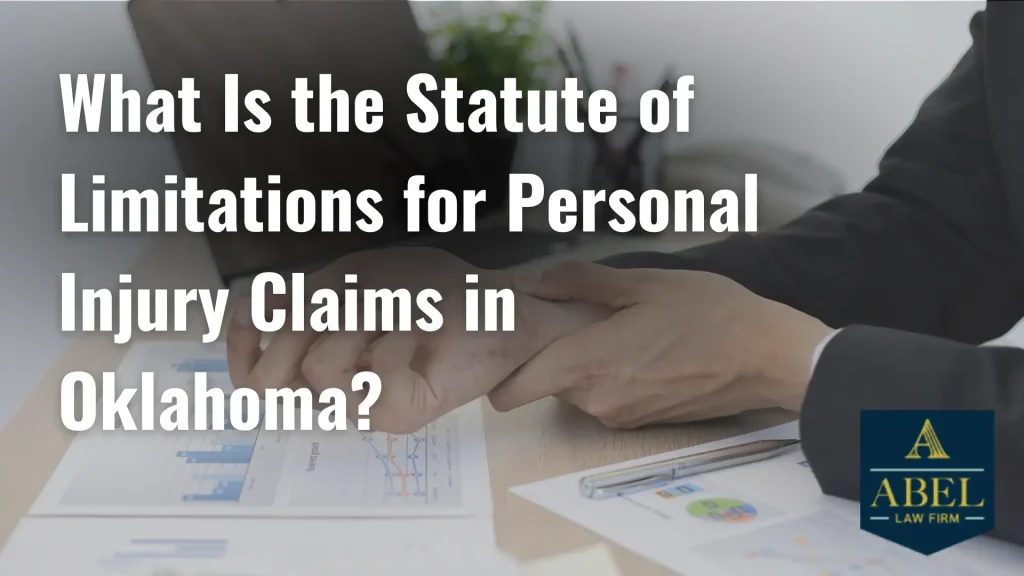Posted on Tuesday, April 15th, 2025 at 9:00 am


This time limit helps keep the process fair by making sure cases proceed while evidence – like witness memories and records – is still fresh. Knowing your deadline can make a big difference if you suffered an injury in a car accident, slipped and fell, or got hurt because of someone else’s mistake.
Why Does the Statute of Limitations Exist?
Statutes of limitations set deadlines for filing legal claims and help keep things fair for everyone. They push people to act while evidence, such as witness memories, paperwork, and other details, remains untouched. Important information could fade or disappear without a time limit, making it harder to sort out what happened.
These rules also protect people from getting dragged into lawsuits years later when defending themselves might be more challenging or impossible. Statutes of limitations help reduce delays and keep the legal process running more smoothly by keeping claims moving on a set timeline.
Statute of Limitations for Personal Injury Cases in Oklahoma
Oklahoma has firm deadlines for filing personal injury claims, and the exact time limit can depend on the type of case. In most situations – such as car accidents, slips and falls, or other negligence-related injuries – you have two years from the date the injury happened to file a lawsuit (§12-95).
If you miss that two-year window, you might lose your right to take legal action entirely. However, there are a few exceptions. For example, the timeline could pause if the injury wasn’t immediately obvious or the person responsible left the state. These situations are limited, so it is important not to assume extra time applies.
The best way to protect your rights is to act quickly. Knowing your deadline and how the law applies to your situation can make all the difference in whether your case moves forward.
Exceptions to the Personal Injury Statute of Limitations
Oklahoma’s two-year time limit is usually the rule for personal injury cases. Still, a few exceptions might pause the clock or give you extra time, depending on what’s going on in your situation.
- Discovery Rule (Under Oklahoma Case Law) – If your injury wasn’t immediately apparent, the two-year clock might not start until you discover it – or should have discovered it with reasonable effort. This is common in medical malpractice cases.
- Minors (Oklahoma Statute: 12 O.S. § 96) – If the injured person is under 18, the deadline typically starts on their 18th birthday. However, a parent or guardian can still file a claim on their behalf sooner.
- Government Entities (Oklahoma Governmental Tort Claims Act – 51 O.S. § 151 et seq.) – You must file claims involving a government agency within just one year, as required by the Oklahoma Governmental Tort Claims Act.
- Defendant’s Absence (Oklahoma Statute: 12 O.S. § 98) – If the person responsible for the injury leaves the state or tries to hide, the court may pause the deadline until they return or are located.
Understanding these exceptions is key to protecting your rights and filing on time.
Can the Statute of Limitations Be Extended in Personal Injury Cases?
Extensions to the statute of limitations – called “tolling” – don’t happen often and only come into play in specific situations. A few examples include:
- Minor Status – If the injured person is under 18, the two-year deadline usually starts when they turn 18.
- Mental Incapacitation – If someone isn’t mentally capable at the time of the injury, the clock may pause until they’re considered competent.
- Fraudulent Concealment – If the person at fault hides what they did, the timeline might be paused until the truth emerges.
These exceptions are limited and not always easy to use. If you think one of them might apply to your case, it’s a good idea to talk with a personal injury lawyer sooner rather than later. They can help you figure out if you still have time to file and what to do next.
Filing a Personal Injury Claim After the Deadline
Filing a personal injury claim after the deadline has passed is rarely successful. Courts take these time limits seriously and will immediately dismiss most late claims.
Unless there is a valid exception, like the delayed discovery of the injury or the at-fault party being out of state, you will likely not be able to move forward. That is why acting fast and understanding the exact deadline that applies to your case is so important.
Every situation is different, and waiting too long can make things more challenging. The sooner you find out where your case stands, the better your chances are of protecting your rights and building a strong claim.
What Happens if I Miss the Statute of Limitations Deadline?


Extensions are uncommon and only apply in specific situations, like fraud, concealment, or other legal exceptions. There’s no guarantee you’ll get an extension, so it’s risky to count on getting one.
That’s why knowing your deadline and acting before it runs out is so important. Even if your case is strong, waiting too long could keep you from getting the compensation you deserve.
Protect Your Right to File
If you suffered injuries in an accident, remember that Oklahoma gives you a limited time to take legal action. Missing that window could mean missing your shot at recovering compensation. Since every case is a little different – and there can be exceptions – it is wise to talk with an Oklahoma personal injury lawyer who knows how this works.
Do not wait around and risk losing your rights. Call our law firm at (405) 239-7046 to discuss your options. You can also visit our site to contact us today and learn how we help people with personal injury claims.
Related Posts
What Are Your Legal Rights as an Injured Passenger in a Car Accident?




